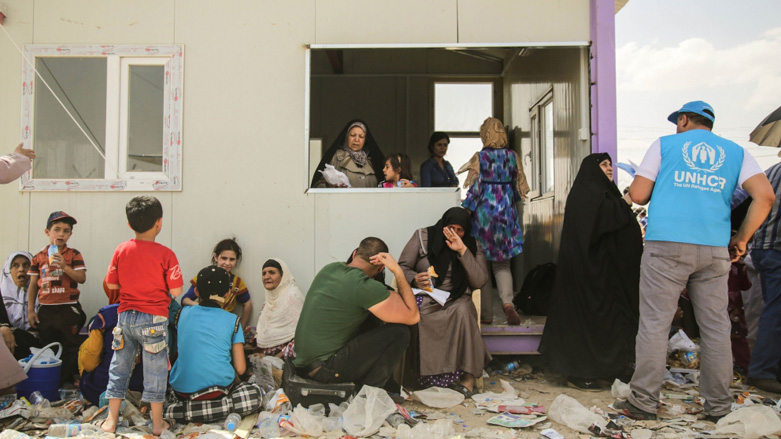HRW: Iraqi authorities arrest, harass, threaten aid workers in Nineveh

ERBIL (Kurdistan 24) – Iraqi authorities in the province of Nineveh are harassing, threatening, and arresting aid workers as well as undermining their work, laying false terrorism charges against them, Human Rights Watch (HRW) claimed in a scathing report on Monday.
“As if their working conditions aren’t difficult enough, aid workers in Mosul and other parts of Nineveh have faced baseless charges of ISIS affiliation, and have even been arrested,” said Lama Fakih, deputy Middle East director at Human Rights Watch.
“Charges of ISIS affiliation appear to be thinly veiled attempts to get some organizations to divert aid to corrupt local authorities or to stop giving assistance to some needy families accused of having relatives in ISIS,” the report continued.
The organization also stated that in some cases, local authorities in Nineveh are forcing humanitarian organizations to stop providing aid to families the officials personally accuse of having ties to the Islamic State.
Sources told HRW that since the beginning of 2018, they had documented at least 22 incidents in Nineveh “ranging from intimidation and arrests to assault, robbery, and live fire incidents,” with similar cases happening in other Iraqi provinces.
Aid agencies told HRW they had raised concerns of harassment, unlawful detention, and threats, along with other abuses of power with the office of Iraqi Prime Minister, Adil Abdul-Mahdi, “but have not received information about tangible steps taken to address the attacks and prevent further harassment.”
The human rights group also called on Iraq’s security forces, with the support of the US-led coalition partners, to integrate in their efforts to ensure the long lasting defeat of the Islamic State information regarding the protection of aid workers, addressing incidents where humanitarian work has been interefered with or targeted.
“Unless there is a robust response to abuses of aid workers and attempts to undermine aid operations, it is going to become even harder and more dangerous for them to help Iraqis who need their assistance, including families with perceived ISIS affiliation,” Fakih added.
There are dozens of humanitarian organizations operating in Iraq, providing aid to displaced people as well as helping rebuild liberated areas damaged by the war against the Islamic State.
Nineveh is the second most populated province in Iraq, after Baghdad, with three million residents. Most of its people were displaced in 2014 after the emergence of ISIS in the north of Iraq.
Over the past year, many displaced people have returned to Nineveh, but others are hesitant to go back due to security concerns and the lack of basic services in the area.
Editing by Nadia Riva
